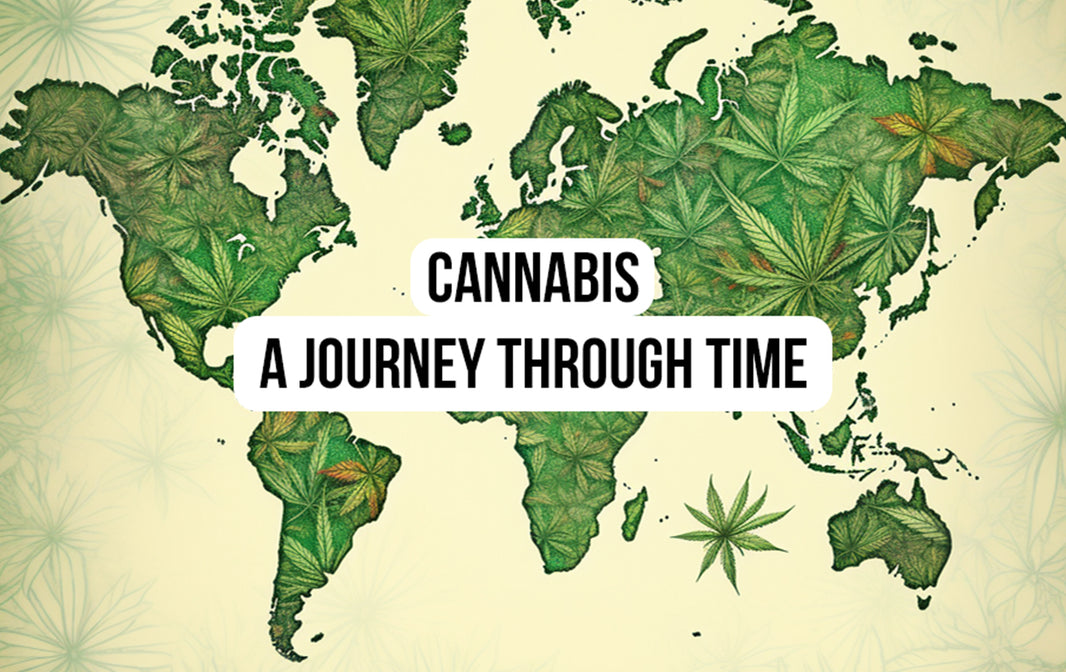“The Father of Cannabis Research”
The entire Cannabis community is coming together to mourn the passing of one of the most influential figures in this space. Raphael Mechoulam passed away March 9th, 2023 at the age of 92.
Who is Raphael Mechoulam?
Raphael Mechoulam is a Bulgarian-born, Israeli organic chemist who is widely known for his pioneering work on the isolation, identification, and synthesis of cannabinoid compounds such as tetrahydrocannabinol (THC), the psychoactive component of cannabis. He is often referred to as the "father of cannabinoid research" and has been instrumental in advancing our understanding of the endocannabinoid system and the potential therapeutic uses of cannabinoids. Mechoulam has received numerous awards for his contributions to medical research and continues to be highly regarded as one of the foremost experts on cannabis and its effects on the human body.
Facing obstacles
Raphael Mechoulam faced many social and legal obstacles on his journey researching marijuana. In the 1960s and 1970s, when he first began his research, marijuana was considered a highly controversial drug in many countries, including Israel where he was based. As a result, Mechoulam had to deal with government regulations that made it difficult for him to obtain funding or permission to carry out his work.
Moreover, he and his team faced social stigma and criticism from some members of the public and medical establishment who viewed their work as promoting drug use. Despite these challenges, Mechoulam continued his research and became known as the "father of cannabinoid research" for his ground breaking discoveries about the chemical composition and effects of marijuana on the human body.

Research
In 1964 he isolated and identified THC as the psychoactive compound in cannabis, which led to further investigation into how it interacts with the human body. This research eventually led to the discovery of the endocannabinoid system, a complex network of receptors and neurotransmitters that play a role in regulating various physiological processes such as pain, mood, appetite, and immune function.

He conducted several studies on the effects of marijuana on humans. In the 1960s, he conducted a clinical trial with fellow researchers at the Weizmann Institute in Israel, where they administered THC, the primary psychoactive compound in marijuana, to human subjects and monitored its effects. This study was the first to demonstrate that THC causes intoxication through its effects on the brain, leading to altered perception, mood, and cognition. In subsequent studies, Mechoulam and his colleagues also investigated the therapeutic potential of cannabinoids for various medical conditions, such as epilepsy, multiple sclerosis, and chronic pain.
Raphael Mechoulam did not discover the endocannabinoid system in humans; instead, he discovered the structure of THC (tetrahydrocannabinol), the main psychoactive compound in cannabis, and the endogenous cannabinoids anandamide and 2-arachidonoylglycerol (2-AG) that interact with the human endocannabinoid system. The existence of the endocannabinoid system was first proposed by researchers Allyn Howlett and William Devane in 1988, and later fully characterized by Mechoulam and his colleagues in the 1990s.
What is the endocannabinoid system?
The endocannabinoid system (ECS) is a complex signaling system that plays an important role in regulating various physiological processes in the body, including mood, appetite, pain sensation, and immune function.
The ECS consists of three main components:
- Endocannabinoids: These are naturally occurring compounds that are produced within the body and act as signaling molecules. The two primary endocannabinoids are anandamide and 2-arachidonoylglycerol (2-AG).
- Receptors: These are proteins found on the surface of cells that interact with endocannabinoids and trigger a response. The two primary receptors in the ECS are CB1 and CB2.
- Enzymes: These are responsible for breaking down endocannabinoids after they have served their purpose. The primary enzymes involved in this process are fatty acid amide hydrolase (FAAH) and monoacylglycerol lipase (MAGL).

When the body needs to maintain homeostasis, or balance, the ECS is activated. Endocannabinoids are produced and bind to CB1 and CB2 receptors, which are found throughout the body. This triggers a cascade of cellular responses that work to regulate various physiological processes.
For example, when the body experiences pain or inflammation, endocannabinoids are produced and bind to CB1 and CB2 receptors in the affected area. This triggers a reduction in pain and inflammation, thereby restoring balance to the body.
Overall, the endocannabinoid system is a vital component of human physiology, helping to maintain homeostasis and promote overall health and wellness.
Mechoulam’s research ensured that the mainstream medical community could no longer ignore Cannabis’s therapeutic qualities.
Click the link below for a wonderful documentary following the life and work of Raphael Mechoulam.
“The Scientist”






